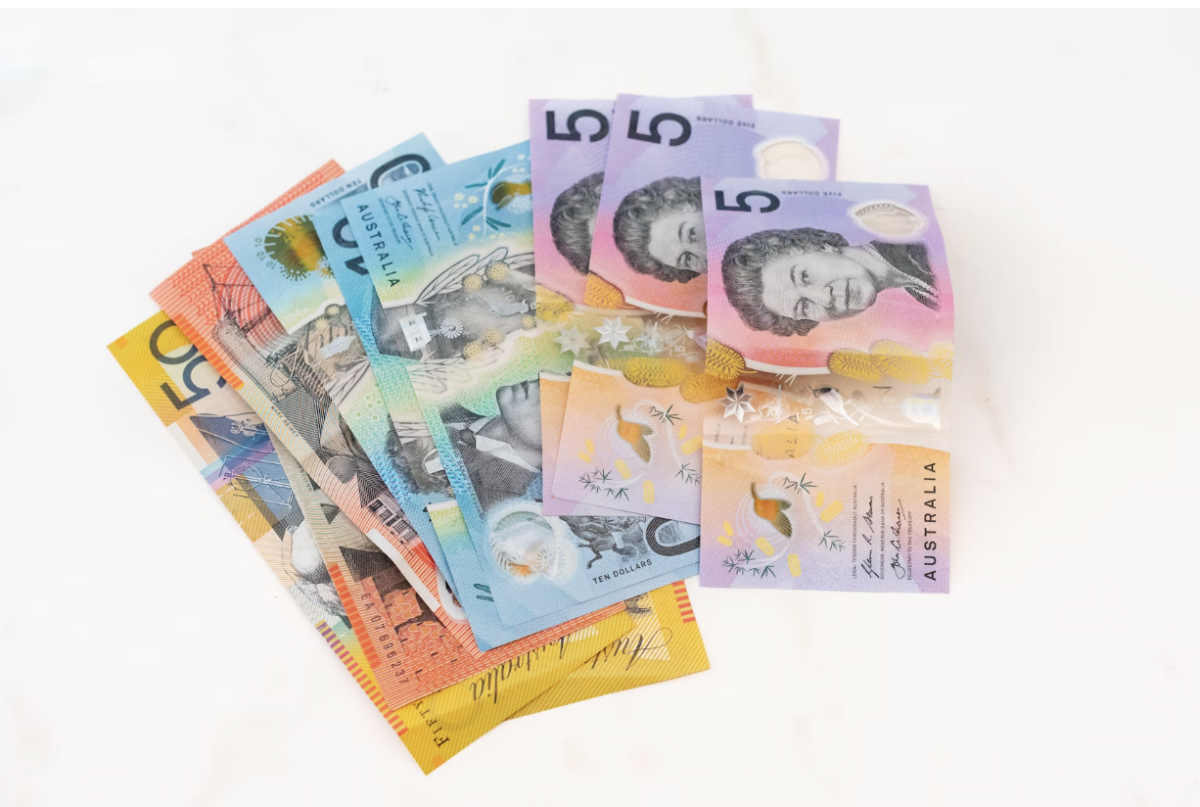
The government calls it a 'cash mandate,' but critics say it's anything but mandatory.
Treasurer Jim Chalmers had promised to introduce legislation protecting cash payments, but the draft proposal released on Friday revealed a number of carve-outs and exemptions that have infuriated advocates.
So what's all the fuss about? And more importantly, what does this mean for the millions of Australians who still prefer to pay with notes and coins?
What the 'mandate' actually mandates
The federal government announced the mandate will commence from January 1, 2026, but the devil is definitely in the detail. The mandate will apply to fuel and grocery retailers as this will best meet consumer expectations to be able to pay for essential goods in cash.
That sounds reasonable enough, until you dig into the extensive list of exemptions. The rules exempt small businesses with aggregate turnover of under $10 million, or, if the business is part of a franchise arrangement, the franchise arrangement's turnover is under $10 million.
The proposed rules would not apply to small businesses, meaning 'the mandate would exempt all small businesses with turnovers below $10 million from having to accept cash.' Financial Services Minister Daniel Mulino said the policy 'will deliver a balanced, practical and sensible step to support cash users and give consideration to businesses.'
In plain English? Your local café, bookshop, pharmacy, or even many medium-sized retailers won't be required to accept your cash at all.
'This cash mandate is garbage. This cash mandate will herald the cashless society in Australia.'
Bryce also told 2GB’s Ben Fordham: “This just greenlights the cashless society. This cash mandate is garbage. This cash mandate will herald the cashless society in Australia.'
He added, 'Tt doesn’t apply to any small business. It doesn’t apply to any other big business except large supermarkets and large petrol stations.'
But even for the big supermarkets and petrol stations that are covered, there are significant catches.
According to the draft legislation, 'Payments are limited to $500, meaning big businesses could refuse to accept cash for purchases above that figure.'
The rules also specify that “in determining whether the consumer has a reasonable opportunity for the purposes of subsection (paying with cash), regard is to be had to whether the number (which must be at least one) of cash payment points operating at the retail site when the payment is to be made is reasonable and proportionate.”
Why this matters if you're over 60
If you're thinking this sounds like a lot of political theatre over something that might not affect you much, think again. Approximately 1.5 million Australians rely on cash for over 80 per cent of their in-person transactions, and the government's plan ensures that these individuals can continue to participate fully in the economy.
Older Australians make up a significant portion of those 1.5 million people, and the numbers tell a concerning story about cash access. Data from the Australian Prudential Regulation Authority show that the number of bank branches declined by nearly 50 per cent between 2011 and 2024, with 230 branches closing over the year to June 2024. While most branch closures were in major cities, over one-quarter were in regional and remote areas of Australia.
Cash access points declining rapidly
Since 2011, Australia has lost nearly half of all bank branches—that's 3,239 branches gone. Regional areas have been particularly hard hit, making it increasingly difficult for older Australians to access cash when they need it.
The loopholes that have advocates fuming
Jason Bryce, who leads the Cash Welcome campaign, didn't mince words when he appeared on 2GB radio. He called the proposed rules 'so full of loopholes, it's ridiculous,' pointing out that they don't apply to any small business or most large businesses outside supermarkets and petrol stations.
He told NewsWire the legislation 'was so full of loopholes, it’s ridiculous.'
'It doesn’t apply to any small business,' he said. 'It doesn’t apply to any other big business except large supermarkets and large petrol stations.'/p]
Source: The Project / Youtube.
The exemptions are quite extensive. Large businesses can even apply for waivers if they can demonstrate that accepting cash poses a 'significant risk' to their ongoing viability. They also only need to maintain cash payment points proportionate to consumer demand—which could mean just one cash register in a massive store, potentially creating long queues for cash users.
The draft legislation also allows exemptions for big businesses 'if it is found that the costs associated with the retailer complying with the cash mandate poses a significant risk to the ongoing feasibility of the supermarket business carried on by the retailer.'
Financial Services Minister Daniel Mulino defended the approach, saying it delivers a balanced, practical and sensible step to support cash users and give consideration to businesses while minimising the costs and risks to businesses.
Mulino also said, 'The mandate will apply to fuel and grocery retailers as this will best meet consumer expectations to be able to pay for essential goods in cash while minimising the costs and risks to businesses.'
What seniors groups are saying
COTA Australia welcomed anything that protects people's ability to pay with cash, but emphasised that the details of the mandate will be key, with Ms Sparrow saying 'The consultation process needs to be very robust and include the voice of older Australians at the centre of it.'
This highlights a crucial point—while the government talks about protecting vulnerable consumers, the consultation process needs to genuinely hear from those who will be most affected by these changes.
What the cash mandate means for you
- Only applies to large supermarkets and petrol stations (over $10 million turnover)
- Capped at $500 transactions
- Small businesses, cafés, shops can still refuse cash completely
- Takes effect January 1, 2026
- Will be reviewed after 3 years
Digital payments aren't always reliable
There's another angle to this story that often gets overlooked. Australia is subject to recurring natural disasters such as bushfires, floods and cyclones, which can knock out digital payment systems when people need them most.
Remember the widespread outages that have hit major banks and payment systems in recent years? When the power's out or the internet's down, cash still works. It's this reliability factor that makes many older Australians prefer to keep some notes and coins handy.
What happens next?
The proposed mandate is now open for public submissions. If approved, it is expected that the new rules will come into effect in January next year, according to the draft released by Treasury.
Public consultation on exposure draft legislation is expected to occur in the third quarter of 2025, with legislation expected to be introduced into Parliament in the fourth quarter of 2025.
The government will review the mandate after 3 years, to ensure it is functioning as intended, considering whether the mandate should be expanded, its impact on businesses, and any developments in cash distribution and access.
Meanwhile, there's another piece of legislation worth watching. An Independent MP has proposed the Keeping Cash Transactions in Australia Bill 2024, which would require businesses operating in face-to-face settings to accept cash payments for transactions that do not exceed $10,000, with fines of up to $25,000 for non-compliance.
The bottom line for your wallet
Despite being called a 'cash mandate,' the legislation is more like 'cash optional' for most businesses. If you prefer paying with cash, you'll still be able to do so at major supermarkets and petrol stations, but don't expect your local coffee shop or boutique to be required to accept your notes and coins.
Australia Post's Billpay service remains available at post offices across Australia and is relied on by businesses and government agencies, including utility providers—so you can still pay bills in cash even if other services go digital.
Did you know?
Did you know?
You can still pay most bills in cash at any Australia Post office through their Billpay service, including utilities, phone bills, and council rates. This service isn't affected by the new mandate and remains available regardless of what other businesses decide to do about cash acceptance.
The government insists that while Australians are increasingly using digital payment methods, there will be an ongoing place for cash in society under the Albanese Government. Whether this limited mandate delivers on that promise remains to be seen.
p]Mulino added that 'consumers already have the option to pay their bills, including utilities, phone bills and council rates, in cash at their local Australia Post outlet through Post Billpay on the current terms of this service.'
As one cash advocate put it, this might be less about protecting cash and more about being seen to protect cash. For the millions of Australians who still prefer the certainty of notes and coins in their wallet, that distinction could make all the difference.
What's your take on the cash mandate? Do you think the government's approach strikes the right balance, or are the exemptions too generous? Have you noticed more businesses in your area going cashless? Share your experiences in the comments below—your voice could help shape how this policy develops.
Primary Source
https://www.news.com.au/finance/mon...f1c44aab57e5eebb603bc22b0571ae?from=rss-basic
Mandating cash for essential goods and services long overdue, crucial reform: COTA Australia—COTA Australia
Cited text: The Federal Government today announced that it will mandate that businesses must accept cash when selling essential items like groceries and fuel, wit...
Excerpt: The federal government announced the mandate will commence from January 1, 2026
https://cota.org.au/news/mandating-cash-for-essential-goods-and-services-reform/
Access to Cash in Australia | Bulletin—January 2025 | RBA
Cited text: The mandate is proposed to commence from 1 January 2026.
Excerpt: The federal government announced the mandate will commence from January 1, 2026
https://www.rba.gov.au/publications/bulletin/2025/jan/access-to-cash-in-australia.html
Mandating cash acceptance a step closer | Treasury Ministers
Cited text: The mandate will apply to fuel and grocery retailers as this will best meet consumer expectations to be able to pay for essential goods in cash, while...
Excerpt: The mandate will apply to fuel and grocery retailers as this will best meet consumer expectations to be able to pay for essential goods in cash
https://ministers.treasury.gov.au/m...eleases/mandating-cash-acceptance-step-closer
Mandating cash acceptance a step closer | Treasury Ministers
Cited text: ... exempt small businesses with aggregate turnover of under $10 million, or, if the business is part of a franchise arrangement—the franchise arran...
Excerpt: The rules exempt small businesses with aggregate turnover of under $10 million, or, if the business is part of a franchise arrangement, the franchise arrangement's turnover is under $10 million
https://ministers.treasury.gov.au/m...eleases/mandating-cash-acceptance-step-closer
Cash and Cheque Modernisation Australia: Key Updates
Cited text: Approximately 1.5 million Australians rely on cash for over 80 per cent of their in-person transactions. The government's plan to mandate cash acceptance for ...
Excerpt: Approximately 1.5 million Australians rely on cash for over 80 per cent of their in-person transactions, and the government's plan ensures that these individuals can continue to participate fully in the economy
https://www.mcbainmccartin.com.au/2024/12/10/client-alert-december-2024-january-2025/
Access to Cash in Australia | Bulletin—January 2025 | RBA
Cited text: Data from the Australian Prudential Regulation Authority (APRA) show that the number of ADI branches declined by nearly 50 per cent (3,239 branches) b...
Excerpt: Data from the Australian Prudential Regulation Authority show that the number of bank branches declined by nearly 50 per cent between 2011 and 2024, with 230 branches closing over the year to June 2024
https://www.rba.gov.au/publications/bulletin/2025/jan/access-to-cash-in-australia.html
Access to Cash in Australia | Bulletin—January 2025 | RBA
Cited text: While most ADI branch closures were in major cities, over one-quarter were in regional and remote areas of Australia.
Excerpt: While most branch closures were in major cities, over one-quarter were in regional and remote areas of Australia
https://www.rba.gov.au/publications/bulletin/2025/jan/access-to-cash-in-australia.html
Mandating cash for essential goods and services long overdue, crucial reform: COTA Australia—COTA Australia
Cited text: Ms Sparrow said that while anything that protects people’s ability to pay with cash is welcomed, the details of the mandate will be key. “The consulta...
Excerpt: COTA Australia welcomed anything that protects people's ability to pay with cash, but emphasised that the details of the mandate will be key, with Ms Sparrow saying 'The consultation process needs to be very robust and include the voice of…
https://cota.org.au/news/mandating-cash-for-essential-goods-and-services-reform/
Mandating cash acceptance Consultation paper December 2024
Cited text: While these figures show a high level of overall availability, when outages do occur they can be highly ... Australia is subject to recurring natural ...
Excerpt: Australia is subject to recurring natural disasters such as bushfires, floods and cyclones
https://treasury.gov.au/sites/default/files/2024-12/c2024-604832-cp.pdf
Mandating Cash Acceptance: Consultation Paper—Law Council of Australia
Cited text: The Consultation Paper indicates that public consultation on exposure draft legislation is expected to occur in the third quarter of 2025, with legisl...
Excerpt: Public consultation on exposure draft legislation is expected to occur in the third quarter of 2025, with legislation expected to be introduced into Parliament in the fourth quarter of 2025
https://lawcouncil.au/resources/submissions/mandating-cash-acceptance-consultation-paper
Mandating cash acceptance a step closer | Treasury Ministers
Cited text: The Government will review the mandate after 3 years, to ensure it is functioning as intended where it matters most.This review will consider whether ...
Excerpt: The government will review the mandate after 3 years, to ensure it is functioning as intended, considering whether the mandate should be expanded, its impact on businesses, and any developments in cash distribution and access
https://ministers.treasury.gov.au/m...eleases/mandating-cash-acceptance-step-closer
Legal tender: bid to enshrine cash use—National Seniors Australia
Cited text: “The Keeping Cash Transactions in Australia Bill 2024 will remedy this by legislating that businesses operating in face-to-face settings must offer to...
Excerpt: An Independent MP has proposed the Keeping Cash Transactions in Australia Bill 2024, which would require businesses operating in face-to-face settings to accept cash payments for transactions that do not exceed $10,000, with fines of up to…
https://nationalseniors.com.au/news/latest-news/legal-tender-bid-to-enshrine-cash-use
Mandating cash acceptance a step closer | Treasury Ministers
Cited text: Billpay is available at post offices across Australia and is relied on by businesses and government agencies, including utility providers and governme...
Excerpt: Australia Post's Billpay service remains available at post offices across Australia and is relied on by businesses and government agencies, including utility providers
https://ministers.treasury.gov.au/m...eleases/mandating-cash-acceptance-step-closer
Mandating cash acceptance a step closer | Treasury Ministers
Cited text: We recognise that Australians are increasingly using digital payment methods, but there will be an ongoing place for cash in our society under the Alb...
Excerpt: that while Australians are increasingly using digital payment methods, there will be an ongoing place for cash in society under the Albanese Government
https://ministers.treasury.gov.au/m...eleases/mandating-cash-acceptance-step-closer







